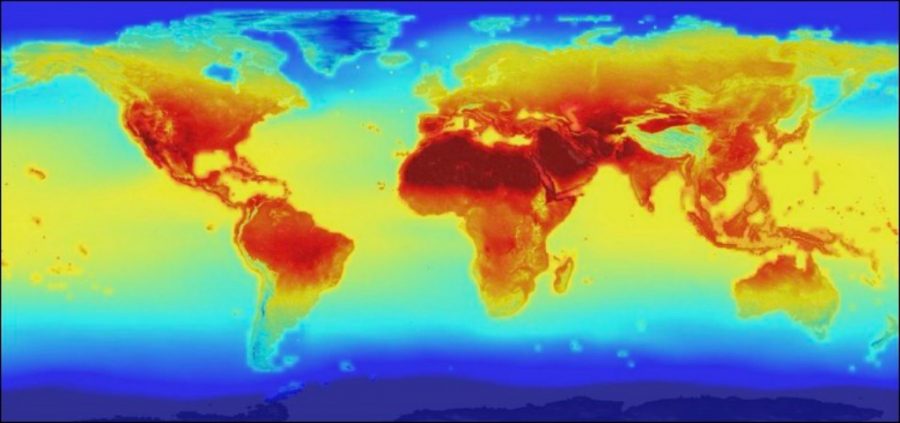Our Responsibilities in Fighting Climate Change
Global Warming
April 17, 2017
The U.S. Geological Survey speculates that many cities along the eastern seaboard could be submerged by 2070 due to rising sea levels brought about by climate change. This is one of the many adverse effects of climate change that the world has been experiencing post-industrial revolution. Humans are indisputably to blame for their constant release of greenhouse gases (carbon dioxide, methane, water vapor, etc.) into the atmosphere. From a student’s perspective, the warming of the Earth may appear to be an issue too large for the individual to tackle. However, there are many simple things that can be done to combat climate change.
Every citizen has opportunities to advocate for positive change. Contacting local and state representatives about climate change issues is a particularly powerful method. Advocate, for instance, for a carbon tax on greenhouse gas emissions to target both businesses and individuals. A carbon tax does not necessarily mean higher taxes, some speculate it could replace the income tax, sales tax, or property tax. Many countries, such as Canada, already use such a tax. British Columbia instituted a carbon tax in 2008, and has since seen a sharp decline in fossil fuel emissions and has outperformed every other Canadian province economically.
Another option is to join or donate to a climate change advocacy group. Some examples include the Sierra Club, Greenpeace, and the Union of Concerned Scientists. These organizations promote the expansion of renewable energy and limitations on fossil fuels. The Sierra Club, for example, was crucial in the fight against the construction of the Keystone XL oil pipeline (a project designed to transport oil from Canada to the Gulf Coast). Supporting one of these groups is a great way to support the struggle against climate change.
Most importantly, individuals must make lifestyle changes to counter climate change. You can do a great deal for the environment by composting organic waste instead of throwing it in the trash. When foodstuffs decompose in landfills anaerobically (without oxygen), they release methane, a greenhouse gas 21 times more potent than carbon dioxide. By simply using a compost bin for organics, Americans could decrease their carbon footprint enormously.
Another option is to utilize public transportation, bike, or carpool instead of driving solo. This is an easy step that would contribute to a huge decrease in fossil fuel emissions. In fact, According to the U.S. Energy Information Administration, burning a gallon of gas produces 19.64 pounds of carbon dioxide.
While climate change may seem like a distant and insurmountable issue, remember that simple things can make a huge difference. Write your congressman, donate to the Sierra Club, buy a compost bin, or get a bus pass, and help curb global warming.


